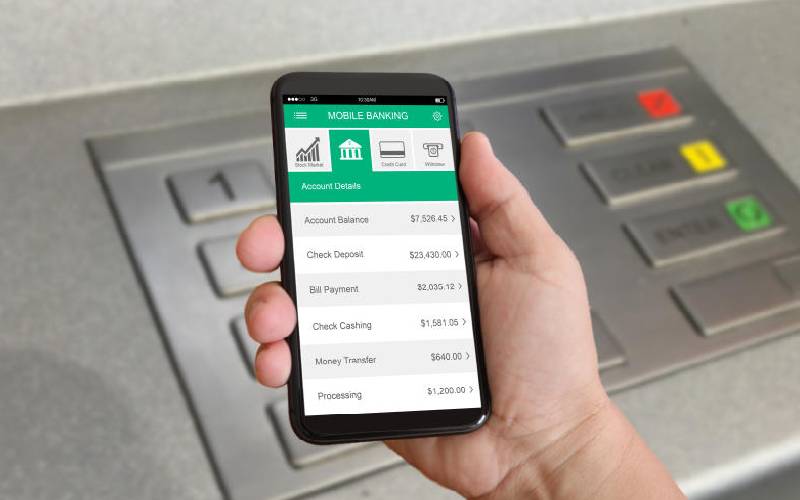
Joanne Kabiru is an operations specialist with a 20-year experience in the East African stock markets. She started out in the retail stock segment providing stock trading services to individual investors before switching to global stock trading 12 years ago. She also offers personal finance coaching directly to clients and additionally through platforms such as ‘I Am Network’, an online mentorship programme she co-founded. The seasoned stockbroker shares her insights on the stock market and offers tips for beginners looking to invest in the stock market.
Locally, people prefer investing in land, yet they should also consider alternative investments such as stocks, bonds, bills and insurance. The best investment advice I would give anyone is not to put all eggs in one basket. You should have diversified investments, some of which are the stock market, others within the government securities – treasury bonds and treasury bills, others within insurance, others within ‘chamas’, and others in land.
Brokers only guide, not control your investment. You need to first open a Central Depository System (CDS) account with a stockbroker. You cannot transact in shares without a CDS account. You can have more than one CDS account. Shares do not sit directly with the broker, they sit with the Central Depository and Settlement Corporation (CDSC), which is an independent body. To alleviate the concerns around the security of stock investments, the CDSC offers investor services such as online account services and e-statements which help investors keep track of their investments and hold their brokers accountable.
Which stock to invest in? You first determine your budget; how much you are looking at investing. Second, look at the stock’s performance and how the company is running, since that will determine the amount of money you will make. That will guide you in establishing which stock has a future and is worth your investment.
You do not need a lot of money to invest in the stock market. The biggest myth people have is that you should have a million shillings to invest in the stock market. I will use a simple example of Safaricom shares. Currently, Safaricom shares are trading at Sh35. This stock was initially sold in the market for Sh5 during the Initial Public Offering. For someone who held onto their shares since then, from Sh5 to Sh35, you see they have made seven times whatever they invested. So even if you invested Sh500 for 100 shares, right now it will be converted to Sh3,500. Now picture the bigger investments.
It is best to invest gradually. It’s not about investing Sh1 million at once. You can start investing slowly. The minimum number of shares one can buy is 100. Depending on the share price. For example, one Safaricom share is Sh35 and 100 shares are Sh3,500. So with Sh3,500, you have bought some shares. Cooperative Bank is currently around Sh13.10. If you buy 100 shares, that is Sh1,310. You can see that investing in stock is within affordable ranges and not out of reach. You can buy 100 shares today, buy another 100 shares tomorrow or next week and continue that way. That is how you find your portfolio growing and as that happens, even the company you have invested in grows, the stock price also grows and so does your investment.
Be responsible for your investment. Don’t leave it to the stockbrokers. Every person has a personal responsibility for their money and its growth. The biggest mistake Kenyans make is pushing on responsibility for their stock investment to stockbrokers. They dump the money to stockbrokers and go away. If you invest money, you should at least monitor it regularly. Don’t leave it and forget about it. If you do that, you may risk missing some opportunities. To make the most out of your investment, you need to gain some knowledge to make informed decisions. That said, a stockbroker has a fiduciary duty to act in the best interest of the client, for example through best execution or giving advise that is relevant to the client’s circumstances.
Diversify your investment in other stock markets. The world is open. The Kenyan market is the busiest as it has the most shares in the East African market. You can invest in any of the East African stock markets since banks have made it possible to invest in those markets. You just convert your currency. Let’s take it even further you can even invest in the New York Stock Exchange by consulting international stockbrokers, who can, in turn, connect you to brokers in other markets. You don’t even have to leave the comfort of your home. Opportunities exist everywhere. Even US investors invest in Kenya. Remember to diversify your investments. That is very important. Even when investing in the Nairobi Stock Exchange, you need to diversify. Don’t invest in one space. You can, for example, combine manufacturing, telecommunications and banking.
Do not hang onto failing stock. Sometimes people hold on to failing shares. Sometimes you just have to bite the bullet. You’ll make a loss, yes, but it’s a lesser loss than when you wait for another six months. Pulling out of a failing investment is very easy. You just need to talk to your broker to place the order. Settlement of trade is in three working days after execution and you will have your funds. It’s easy to pull out.
 The Standard Group Plc is a
multi-media organization with investments in media platforms spanning newspaper
print operations, television, radio broadcasting, digital and online services. The
Standard Group is recognized as a leading multi-media house in Kenya with a key
influence in matters of national and international interest.
The Standard Group Plc is a
multi-media organization with investments in media platforms spanning newspaper
print operations, television, radio broadcasting, digital and online services. The
Standard Group is recognized as a leading multi-media house in Kenya with a key
influence in matters of national and international interest.
 The Standard Group Plc is a
multi-media organization with investments in media platforms spanning newspaper
print operations, television, radio broadcasting, digital and online services. The
Standard Group is recognized as a leading multi-media house in Kenya with a key
influence in matters of national and international interest.
The Standard Group Plc is a
multi-media organization with investments in media platforms spanning newspaper
print operations, television, radio broadcasting, digital and online services. The
Standard Group is recognized as a leading multi-media house in Kenya with a key
influence in matters of national and international interest.






